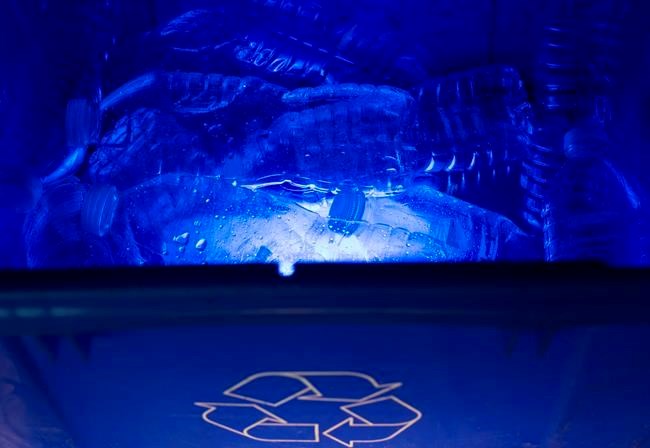A group of Canada's leading consumer brands, retailers and restaurants have launched a new organization that will help companies comply with new blue box recycling rules in Ontario.Â
Circular Materials, a not-for-profit producer responsibility organization, was created by 15 companies in response to Ontario's decision to shift 100 per cent of recycling costs to product and packaging companies.
The rules will make companies pay to recycle the packaging they put into the market through a new provincial collection system — a move the province says will save communities $156 million a year.
Diane J. Brisebois, president and CEO of the Retail Council of Canada, says Circular Materials will ensure the recycling system operates efficiently and cost effectively.
Michael Graydon, CEO of Food, Health & Consumer Products of Canada, says the not-for-profit model will help manage costs and ensure transparency for producers.Â
The 15 founding members of Circular Materials are: Costco Wholesale Canada Ltd., Empire Company Ltd., Kraft-Heinz Canada, Keurig Dr Pepper Canada, Lassonde Industries Inc., Loblaw Companies Ltd., Maple Leaf Foods, McDonald’s Restaurants of Canada Ltd., Metro Inc., The Minute Maid Company Canada Inc., Nestlé Canada, PepsiCo Canada, Procter & Gamble Inc., Restaurant Brands International and The Clorox Company of Canada Inc.
Many provinces across Canada have introduced some form of extended producer responsibility program in recent years.Â
The so-called cradle-to-grave approach to waste management shifts the cost of recycling from taxpayers onto the companies that produce the packaging. They are generally charged a fee based on the tonnage of packaging they produce, as well as other factors such as the material and its recyclability.Â
Advocates of this approach say it encourages companies to develop more sustainable packaging.Â
Jim Goetz, president of the Canadian Beverage Association, says Circular Materials was launched to help producers meet their obligations under extended producer responsibility policies across Canada, and in particular in Ontario.Â
"Many provinces have moved or are moving toward an extended producer responsibility model where producers are responsible for collecting and recycling the materials that they put on the market," he said.Â
"In order to address that regulation and be in compliance with it, we're launching Circular Materials as a not-for-profit producer-governed organization as we believe it is the best way to serve, represent and support producers in building better recycling systems."
Meanwhile, GFL Environmental Inc. recently formed the Resource Recovery Alliance, also with the aim of helping product and packaging companies meet their responsibilities under Ontario’s blue box recycling program.
The waste management company said the alliance will become a producer responsibility organization, similar to Circular Materials, under the province’s new legislation and will be integrated within GFL’s service offerings.
GFL also said it has signed a deal to acquire the Canadian Stewardship Services Alliance, which provides management and administrative services to businesses to meet their recycling obligations.
It's unclear how potential competition between the waste management company's organization and the non-profit Circular Materials will play out in the market.Â
Graydon with Food, Health & Consumer Products of Canada said some producers were hoping Ontario would identify a single producer responsibility organization.
"Putting it into a competitive situation has actually added some complexity to the process because you now have multiple (producer responsibility organizations) competing," he said.Â
"It adds some complexity, such as with assigning contracts for pickup, because you don't want three different trucks arriving on your curbside to pick up your recycling."
This report by The Canadian Press was first published July 28, 2021.
Brett Bundale, The Canadian Press




